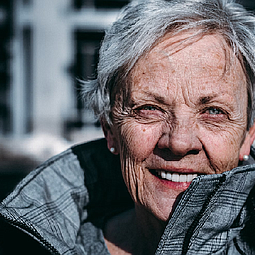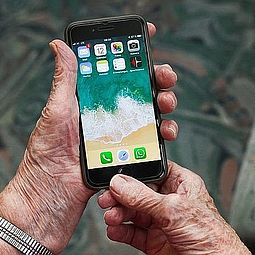More Americans electing new strategies to health care
March 22, 2013 at 6:00 a.m.
The results are in: Americans are voting to broaden their approach to healing and health maintenance.
While waiting for the outcomes of national and state elections have slowed some current health care reform efforts, patients and health professionals continue to talk about "patient-centered care" and endorse an expansion of practices beyond "conventional" medical models. These can include prayer and mind/body practices, the use of natural products, or massage and chiropractic services.
Why the shift? Experts point to several factors. One is the challenges of the current health care system - some of which are inherent to the use of chemicals and surgery on the human body and some more due to a large system that is in overload and unduly influenced by dollars. Another is the increased confidence inspired by the beneficial results being reported when using complementary and alternative methods. In other words patients are finding they work.
One of the biggest challenges with the current approach to health care might be equated to the old adage; too many cooks spoil the broth. That's certainly true. When too many people take charge, the results can be ruinous. A modern day variant of the axiom might go: Too many doctors can be bad for your health. That's the headline in a Consumer Reports article published recently.
Orly Avitzur, M.D., Consumers Reports Medical Adviser, points to an issue of the Archives of Internal Medicine confirming "what doctors have long known—that many patients are suffering from too much care."
Avitzur goes on to cite a March 2012 report published in the Journal of the American Medical Association (JAMA) that lists four areas where overtreatment is leading to medical problems: over medication, too much testing, waste of time and resources, and increased stress resulting from too many opinions. He concludes, "In fact, when it comes to your well-being, less is often more."
Yet, beyond the concerns of over-diagnosis and over-treatment, patients are demanding the implementation of alternative disciplines as an avenue toward healing. And health experts are responding.
42 percent of reporting hospitals offer at least one type of complementary medicine according to a survey conducted by the American Hospital Association and the Samueli Institute. That's up from 27 percent just five years earlier.
"Experts say hospitals are embracing these therapies for many reasons, including a growing recognition that some integrative therapies, as they're also called, are very effective in some instances," writes Michelle Andrews for Kaiser Health News.
Indeed, many respected hospitals across the country are committing more resources to this approach. The Centers for Integrative Medicine at The Cleveland Clinic and The Ohio State University have joined with 51 other institutions to form the Consortium of Academic Health Centers for Integrative Medicine whose mission is to advance the principles and practices of integrative healthcare within academic institutions.
Additionally, over the last few decades more than 1500 studies have been made on the role spirituality, prayer and religiosity have in health. And, summaries of these studies indicate consistently, prayer and/or meaningful ties to a religious practice or faith community improve health results.
I have always appreciated the thought-provoking Bible account of the man waiting by the pool a substantial amount of time in need of healing. Before his health is restored, Jesus asks him, "Do you want to get well?" To me that question points to a responsibility each of us needs to take in our own thought and actions as we commit to healthy outcomes.
These advancements in healthcare are evidence of a changing mindset of mandated medical intervention to a growing awareness of other effective practices contributing to health and healing, especially the importance of thought on health. As patients are given a bigger voice in their treatment plans and elect to make appropriate lifestyle choices, they are coming to the realization of how much freedom and independence they have in pursuing healthy lives. That is something we can all vote for.






